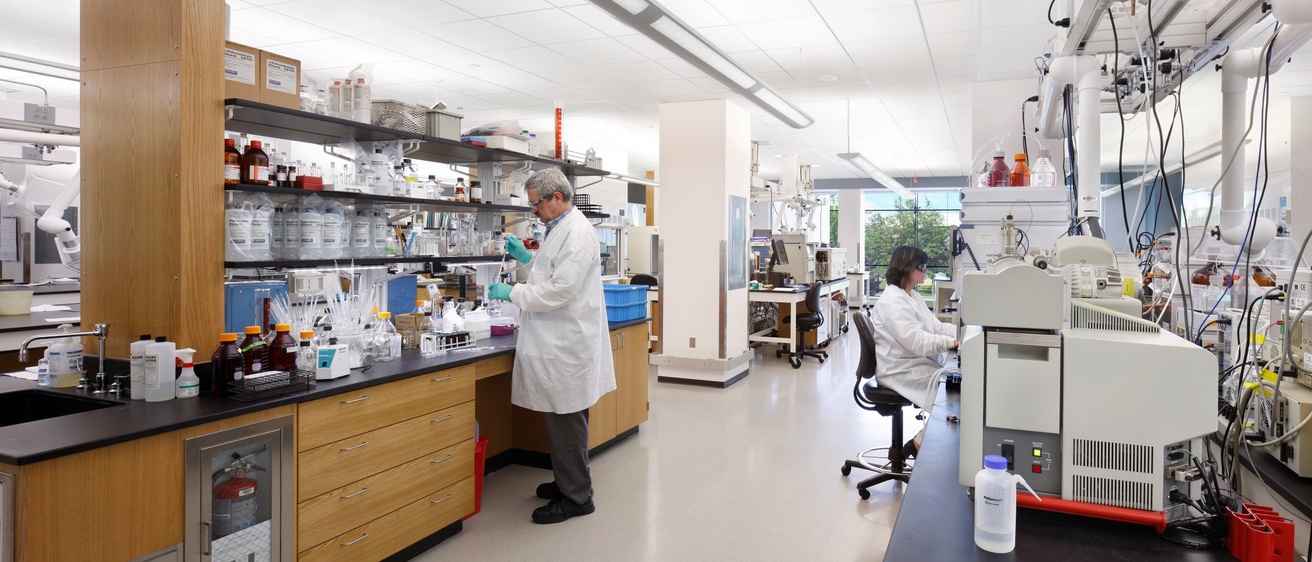Founded in 1904, the State Hygienic Laboratory at the University of Iowa (SHL) is Iowa’s environmental and public health laboratory. It serves all 99 counties by testing for infectious diseases, performing maternal and newborn screening, and monitoring the air, water and soil for environmental contaminants. SHL protects and improves quality of life by providing reliable environmental and public health information through the collective knowledge and capabilities of our organization. SHL routinely performs over 750,000 analyses annually. The COVID-19 pandemic redefined high-volume testing for all public health laboratories, but few more than SHL, which performed over 1.7 million COVID-19 tests between February 2020 and January 2022 in addition to performing all other routine tests for the citizens of Iowa.
SHL is headquartered on the University of Iowa’s Research Park campus in Coralville, northwest of Iowa City. This primary location consists of a three-story, 113,000 square-foot LEED gold building built in 2010. A new addition was added in 2024 including a 2,800 square-foot BSL3 laboratory and additional support space. Approximately 215 staff work on-site or remotely for the Coralville location, and around 60 additional staff work at SHL’s two satellite locations in Ankeny, near Des Moines, as part of the Iowa Laboratory Facilities and in Milford in the northwestern part of Iowa where water quality testing is performed at the Iowa Lakeside Laboratory Regents Resource Center.
SHL staff actively promote cutting-edge laboratory science and policy by delivering scientific presentations and posters at various meetings and conferences, and authoring peer-reviewed publications. These contributions and many others shape public health laboratory practice and many SHL staff are recognized as state and national leaders in their respective fields of expertise.
SHL has the PFAS program running for couple of years to test for PFAS in different environmental and biological matrices. Currently, SHL have EPA 537.1 and 533 methods in production to test for PFAS in water matrices (drinking, raw, well, surface, and groundwater). The lab is accredited and certified by the state, EPA, and UCMR5 program to test for PFAS in water samples. In addition, SHL is currently working on developing a new method to test for PFAS in biological samples (serum and plasma) and other related methods. SHL teams are collaborating with different departments and local agencies to develop new PFAS methods to study and monitor for PFAS contamination and exposure in the state of Iowa.
